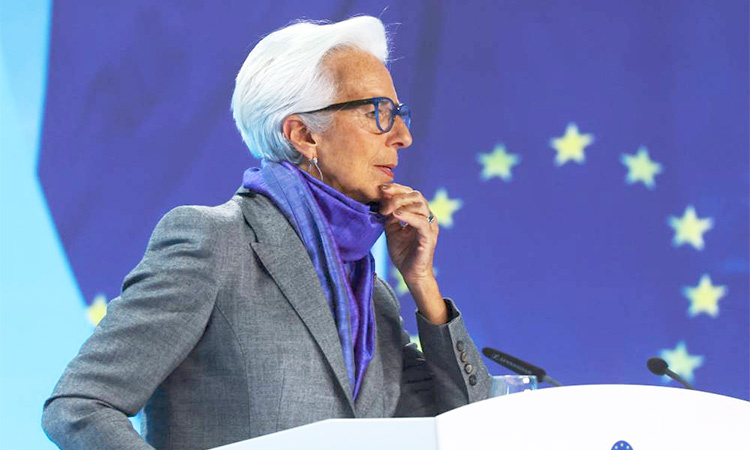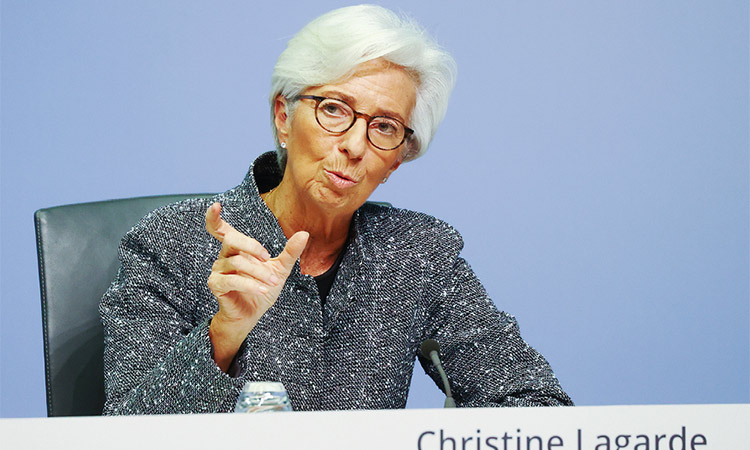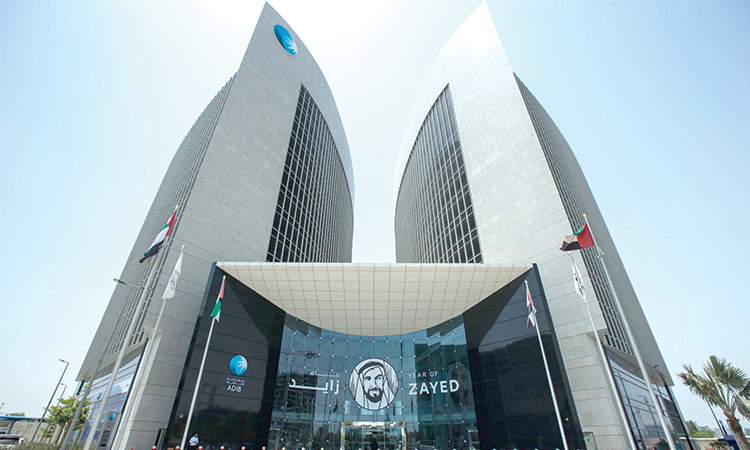ECB looking for signs of stress but banking crisis unlikely

Christine Lagarde answers questions during the European Parliament Committee on Economic Affairs in Brussels. File/Agence France-Presse
Investors are pondering whether the ECB will be able to continue raising rates to fight inflation given turmoil in the banking sector that has seen two US lenders go under and Swiss giant Credit Suisse need a last-minute rescue.
The ECB’s chief economist Philip Lane said market jitters may turn out to be “a non-event” for monetary policy, or could affect it at the margins, but the odds on a crisis that completely rewrites the outlook remained long.
“We always run scenarios about... what happens when we get accelerator effects or things amplify each other. But that’s pretty much a tail scenario at this point in time,” Lane told a conference on Wednesday.
Pierre Wunsch, Belgium’s central bank chief, took a similarly relaxed view, arguing that strong supervision has kept the bloc’s banks healthy.
“We’ve been torturing the data in all directions and honestly, what we see is no problem,” Wunsch said. “Even if banks would have to sell all of their obligations and take the losses, they would still have enough capital.”
Speaking at the same event, ECB President Christine Lagarde said the ECB’s interest rate hikes may be magnified if banks become more risk averse and start demanding higher rates when lending - likely implying the central bank would need to do less.
“If, for example, banks start to apply a larger ‘intermediation wedge’ - meaning that at any level of the base rate they demand a higher compensation for the perceived risk they are taking on when lending - then pass-through will become stronger,” Lagarde said.
She reaffirmed the ECB’s determination to bring inflation in the eurozone to 2%, from 8.5% last month, and noted past hikes were only just starting to be passed onto the economy.
“For inflationary pressures to ease, it is important that our monetary policy works robustly in the restrictive direction,” she said. “And that process is only starting to take effect now.”
Recent financial turbulence could add to “downside risks” in the eurozone, Christine Lagarde warned Wednesday, while insisting policymakers remained focused on taming sky-high inflation.
The collapse of three regional US lenders and the enforced UBS buyout of Swiss rival Credit Suisse this month has plunged global markets into turmoil and triggered fears of a snowballing banking sector crisis.
Lagarde said the latest ecb forecasts -- which lowered inflation projections and raised the growth outlook for this year -- did not take into account the recent upheaval.
“Those tensions have added new downside risks and have made the risk assessment blurrier,” she said in a speech in Frankfurt.
She added that there was “additional uncertainty” when it came to the ECB projections.
The ECB president insisted, however, that if the forecasts were confirmed, “we will still have ground to cover to make sure that inflation pressures are stamped out”.
But faced with “high uncertainty”, future decisions would depend on the data, she said, and refrained from making a commitment to raise rates further.
The market turmoil has left central bankers walking a tightrope between pushing on with their efforts to bring down stubbornly high inflation and seeking to ensure they do not worsen the upheaval.
Also speaking Wednesday, ecb board member Fabio Panetta acknowledged the challenge, saying “monetary policy must perform a difficult balancing act”. A series of “global shocks” had disrupted economies worldwide, said Panetta, who is seen as a policy “dove”.
“We need to navigate between the risk of underreacting -- which could prolong the inflationary effects of these shocks -- and that of overreacting, which could turn volatility into instability.”
He also sounded a note of caution about central banks hiking interest rates while at the same time reducing liquidity through so-called “quantitative tightening”, saying it could “make the policy adjustment bumpier”.
Quantitative tightening, which the ecb has also embarked on, involves winding down massive balance sheets, swelled by years of anti-crisis measures, and is seen as another front in the fight against inflation.
The ECB has increased the rate it pays on bank deposits by a record-breaking 350 basis points to 3% since July and financial markets expect a further increase to 3.5% later this year.
The central bank for the 20 countries that share the euro raised rates last week but removed from its policy message an expectation that it would increase rates again at upcoming meetings in light of the recent financial jitters.






